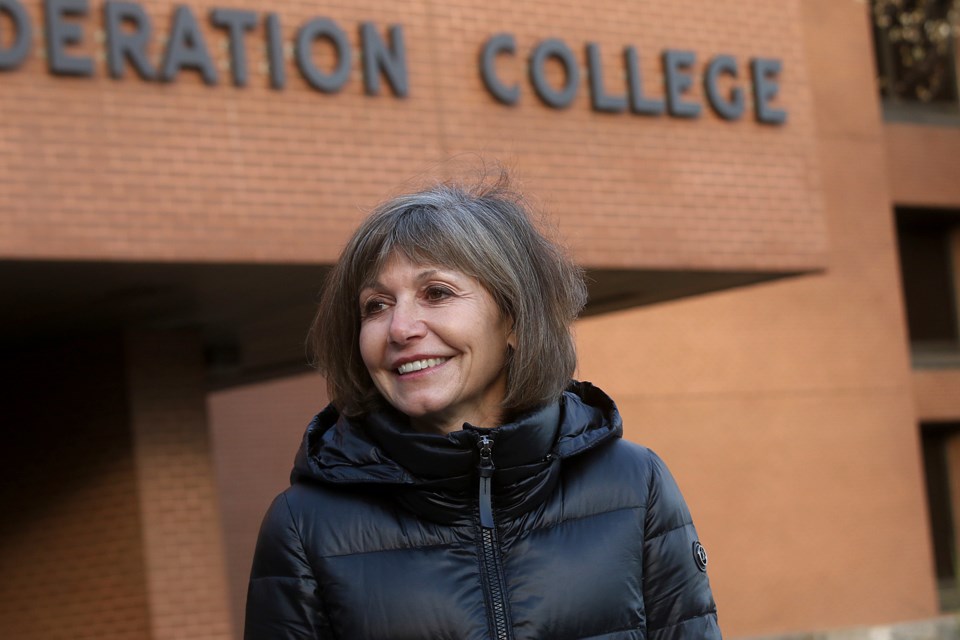THUNDER BAY — Kathleen Lynch looks forward to the time – hopefully this fall – when thousands more students at Confederation College are walking the hallways between classes.
For now, though, the president of the college says the atmosphere at the school is nothing like it was a year ago, before the COVID-19 pandemic was declared.
"It just feels so very different, with having very few students on campus," Lynch said in an interview.
Most students are taking their lessons online, leaving only those learning in labs and apprenticeship programs still coming through the doors.
Lynch estimates that only about one-third of the students who would be on campus in a normal year are currently attending the college in person.
Most of the faculty are teaching virtually from their homes.
Enrollment at Confederation College has also taken a hit.
In the fall, about 3,200 students registered for classes, a 27 per cent decline from the fall of 2019, but slightly better than the 30 per cent average drop at Ontario colleges.
Most of the drop is attributed to the clampdown on international travel, forcing students from overseas to stay at home rather than return to Thunder Bay.
Before the pandemic, the college registered about 1,400 international students for the 2019-2020 school year, which was a new record.
Lynch said Confederation College initially anticipated running a deficit this year because of revenue decline and additional expenses related to COVID-19, but now believes it may finish the year in the black.
"Some of our costs are coming in lower. We've reduced wherever we can. Where we've had vacancies, we've maintained those vacancies, so we're confident now that we're going to break even and maybe have a small surplus."
She said if it weren't for the international students who were already in Thunder Bay and able to stay in Canada through the pandemic, the situation today would have been more dire.
"We would have been in a much graver situation, and at first we were really worried about that. But we've really tightened our belts and been able to do a good job of trying to balance our budget this year," Lynch added.
The next challenge the college faces is how to plan for what the next school year might bring.
The president said the repercussions from COVID-19 will continue even if the pandemic subsides.
"Our programs are two and three years long, so when you miss groups of students in that first year, the impact will last" well beyond that, she said. "We're still crunching the numbers to see what our budget's going to look like for the coming year."
The college hopes to register about 950 international students this year, but aims to gradually build that component back to where it comprises 40 per cent of the student body.
The school has already decided that, this fall, there will be no increase in the international student tuition. The fees for domestic students were reduced by the province by 10 per cent a couple of years ago, and will remain frozen in the coming school year.
Lynch said some adjustments have been made in marketing the college to foreign students.
Besides ramping up its digital marketing, she said it aims to focus on more countries, hoping to replicate the good results it has had in India.
"We're very dependent on India," Lynch said, but added "we've had some success with the Philippines, and we are also looking at partnering with some other colleges on international recruitment. We have a proposal in to do that, and focusing on South Africa as well."
She emphasized that the college will keep working to attract students from Canada, including Indigenous students, saying "we're going to put our heads together to see how we can be more creative to attract students."
As part of that effort. Lynch said the school will try to be more flexible with the types of study options it makes available to students going forward.
